
BOOKS - Tracing Language Movement in Africa

Tracing Language Movement in Africa
Author: Ericka Ann Albaugh
Year: 2018
Format: PDF
File size: PDF 5.6 MB
Language: English

Year: 2018
Format: PDF
File size: PDF 5.6 MB
Language: English

Tracing Language Movement in Africa: A Call for Interdisciplinary Dialogue As we delve into the complexities of language movement and change in Africa, it becomes evident that the continent's diversity of ethnicities and languages has often been perceived as a fragmented landscape. However, this perception is not entirely accurate. In reality, most people in Africa can communicate with others within and across state boundaries, highlighting the need for a more unified approach to studying language evolution. This book brings together eighteen scholars from various disciplines, including history, archaeology, anthropology, linguistics, political science, and philosophy, to explore the commonalities and distinctions in our understanding of language change and movement in Africa. The volume is structured to reflect the differing conceptions of language that arise from each discipline's theoretical and methodological approaches. Each contribution includes a brief explanation of the discipline's approach to language movement and change, making the chapters accessible to nonspecialists. The organization of the volume encourages interdisciplinary conversations around the study of language change in Africa, opening up new avenues for research and inspiring scholars to adapt the questions, data, and methods of other disciplines to their own field of study. History: A Framework for Understanding Language Movement The historical context of language movement in Africa is crucial to understanding the evolution of languages on the continent.
Отслеживание языкового движения в Африке: Призыв к междисциплинарному диалогу По мере того, как мы углубляемся в сложности языкового движения и изменений в Африке, становится очевидным, что разнообразие этнических групп и языков континента часто воспринимается как фрагментированный ландшафт. Однако такое восприятие не совсем точно. В действительности, большинство людей в Африке могут общаться с другими внутри и за пределами государственных границ, подчеркивая необходимость более единого подхода к изучению языковой эволюции. Эта книга объединяет восемнадцать ученых из различных дисциплин, включая историю, археологию, антропологию, лингвистику, политологию и философию, чтобы исследовать общие черты и различия в нашем понимании языковых изменений и движения в Африке. Том структурирован, чтобы отразить различные концепции языка, которые возникают из теоретических и методологических подходов каждой дисциплины. Каждый вклад включает в себя краткое объяснение подхода дисциплины к языковому движению и изменениям, делая главы доступными для неспециалистов. Организация тома поощряет междисциплинарные беседы вокруг изучения языковых изменений в Африке, открывая новые возможности для исследований и вдохновляя ученых адаптировать вопросы, данные и методы других дисциплин к их собственной области изучения. История: основа для понимания языкового движения Исторический контекст языкового движения в Африке имеет решающее значение для понимания эволюции языков на континенте.
Suivre le mouvement linguistique en Afrique : Un appel au dialogue interdisciplinaire À mesure que nous approfondissons la complexité du mouvement linguistique et le changement en Afrique, il devient évident que la diversité des ethnies et des langues du continent est souvent perçue comme un paysage fragmenté. Mais cette perception n'est pas tout à fait exacte. En fait, la plupart des gens en Afrique peuvent communiquer avec d'autres à l'intérieur et à l'extérieur des frontières de l'État, soulignant la nécessité d'une approche plus unifiée de l'apprentissage de l'évolution linguistique. Ce livre réunit dix-huit chercheurs de différentes disciplines, dont l'histoire, l'archéologie, l'anthropologie, la linguistique, la science politique et la philosophie, afin d'explorer les points communs et les différences dans notre compréhension des changements et des mouvements linguistiques en Afrique. volume est structuré pour refléter les différents concepts du langage qui découlent des approches théoriques et méthodologiques de chaque discipline. Chaque contribution comprend une brève explication de l'approche de la discipline à l'égard du mouvement linguistique et du changement, rendant les chapitres accessibles aux non-spécialistes. L'organisation du volume encourage les conversations interdisciplinaires autour de l'étude des changements linguistiques en Afrique, ouvrant de nouvelles possibilités de recherche et incitant les scientifiques à adapter les questions, les données et les méthodes d'autres disciplines à leur propre domaine d'étude. L'histoire : une base pour comprendre le mouvement linguistique contexte historique du mouvement linguistique en Afrique est crucial pour comprendre l'évolution des langues sur le continent.
Seguimiento del movimiento lingüístico en África: Un llamado al diálogo interdisciplinario A medida que profundizamos en la complejidad del movimiento lingüístico y los cambios en África, se hace evidente que la diversidad de grupos étnicos y lenguas del continente a menudo se percibe como un paisaje fragmentado. n embargo, tal percepción no es del todo precisa. De hecho, la mayoría de la gente en África puede comunicarse con otros dentro y fuera de las fronteras estatales, destacando la necesidad de un enfoque más unificado para aprender la evolución lingüística. Este libro reúne a dieciocho estudiosos de diversas disciplinas, entre ellas historia, arqueología, antropología, lingüística, ciencias políticas y filosofía, para investigar los rasgos comunes y las diferencias en nuestra comprensión del cambio lingüístico y el movimiento en África. volumen está estructurado para reflejar los diferentes conceptos del lenguaje que surgen de los enfoques teóricos y metodológicos de cada disciplina. Cada contribución incluye una breve explicación del enfoque de la disciplina hacia el movimiento lingüístico y el cambio, poniendo los capítulos a disposición de los no especialistas. La organización del volumen fomenta conversaciones interdisciplinarias en torno al estudio del cambio lingüístico en África, abriendo nuevas oportunidades de investigación e inspirando a los científicos a adaptar preguntas, datos y métodos de otras disciplinas a su propio campo de estudio. Historia: la base para entender el movimiento lingüístico contexto histórico del movimiento lingüístico en África es crucial para entender la evolución de las lenguas en el continente.
Rastreamento do movimento linguístico em África: Apelo ao diálogo interdisciplinar À medida que nos aprofundamos na complexidade do movimento linguístico e das mudanças na África, torna-se evidente que a diversidade de grupos étnicos e línguas do continente é frequentemente vista como uma paisagem fragmentada. No entanto, essa percepção não é exata. Na verdade, a maioria das pessoas em África podem comunicar com outras pessoas dentro e fora das fronteiras governamentais, enfatizando a necessidade de uma abordagem mais unificada da evolução linguística. Este livro reúne dezoito cientistas de diversas disciplinas, incluindo História, Arqueologia, Antropologia, Linguística, Ciência Política e Filosofia, para explorar as características e diferenças comuns da nossa compreensão das mudanças linguísticas e do movimento em África. O volume é estruturado para refletir os diferentes conceitos de linguagem que surgem das abordagens teóricas e metodológicas de cada disciplina. Cada contribuição inclui uma breve explicação da abordagem da disciplina sobre o movimento linguístico e as mudanças, tornando os capítulos acessíveis aos não especializados. A organização do volume encoraja conversas interdisciplinares em torno do aprendizado das mudanças linguísticas na África, oferecendo novas oportunidades de pesquisa e inspirando os cientistas a adaptarem questões, dados e técnicas de outras disciplinas ao seu próprio campo de estudo. História: A base para a compreensão do movimento linguístico O contexto histórico do movimento linguístico em África é fundamental para compreender a evolução das línguas no continente.
Tracciamento del movimento linguistico in Africa: Appello al dialogo interdisciplinare Mentre approfondiamo la complessità del movimento linguistico e dei cambiamenti in Africa, è evidente che la diversità dei gruppi etnici e delle lingue del continente è spesso vista come un paesaggio frammentato. Tuttavia, questa percezione non è precisa. In realtà, la maggior parte delle persone in Africa possono comunicare con altri all'interno e all'esterno dei confini nazionali, sottolineando la necessità di un approccio più coerente all'evoluzione linguistica. Questo libro riunisce diciotto scienziati di diverse discipline, tra cui storia, archeologia, antropologia, linguistica, scienze politiche e filosofia, per esplorare le caratteristiche comuni e le differenze nella nostra comprensione del cambiamento linguistico e del movimento in Africa. Il volume è strutturato per riflettere i diversi concetti di linguaggio che emergono dagli approcci teorici e metodologici di ogni disciplina. Ogni contributo include una breve spiegazione dell'approccio della disciplina al movimento linguistico e al cambiamento, rendendo i capitoli accessibili ai non specialisti. L'organizzazione del volume incoraggia le conversazioni interdisciplinari intorno allo studio dei cambiamenti linguistici in Africa, offrendo nuove opportunità di ricerca e incoraggiando gli scienziati ad adattare le questioni, i dati e le tecniche di altre discipline al loro campo di studio. Storia: la base per comprendere il movimento linguistico Il contesto storico del movimento linguistico in Africa è fondamentale per comprendere l'evoluzione delle lingue nel continente.
Der Sprachbewegung in Afrika auf der Spur: Plädoyer für einen interdisziplinären Dialog Während wir uns in die Komplexität der Sprachbewegung und des Wandels in Afrika vertiefen, zeigt sich, dass die Vielfalt der ethnischen Gruppen und Sprachen des Kontinents oft als fragmentierte Landschaft wahrgenommen wird. Diese Wahrnehmung ist jedoch nicht ganz korrekt. Tatsächlich sind die meisten Menschen in Afrika in der Lage, mit anderen innerhalb und außerhalb der Staatsgrenzen zu kommunizieren, was die Notwendigkeit eines einheitlicheren Ansatzes für das Studium der Sprachentwicklung unterstreicht. Dieses Buch bringt achtzehn Wissenschaftler aus verschiedenen Disziplinen zusammen, darunter Geschichte, Archäologie, Anthropologie, Linguistik, Politikwissenschaft und Philosophie, um Gemeinsamkeiten und Unterschiede in unserem Verständnis von Sprachwandel und -bewegung in Afrika zu untersuchen. Der Band ist so strukturiert, dass er die unterschiedlichen Sprachkonzepte widerspiegelt, die sich aus den theoretischen und methodischen Ansätzen jeder Disziplin ergeben. Jeder Beitrag enthält eine kurze Erläuterung des Ansatzes der Disziplin in Bezug auf Sprachbewegung und Veränderung und macht die Kapitel für Laien zugänglich. Die Organisation des Bandes fördert interdisziplinäre Gespräche rund um die Erforschung des Sprachwandels in Afrika, eröffnet neue Forschungsmöglichkeiten und inspiriert Wissenschaftler, Fragen, Daten und Methoden anderer Disziplinen auf ihr eigenes Forschungsgebiet abzustimmen. Geschichte: Grundlage für das Verständnis der Sprachbewegung Der historische Kontext der Sprachbewegung in Afrika ist entscheidend für das Verständnis der Sprachentwicklung auf dem Kontinent.
Śledzenie ruchu językowego w Afryce: Wezwanie do dialogu interdyscyplinarnego Ponieważ głębiej zagłębiamy się w złożoność ruchu językowego i zmiany w Afryce, okazuje się, że różnorodność grup etnicznych i języków kontynentu jest często postrzegana jako fragmentaryczny krajobraz. Jednak ta percepcja nie jest całkowicie dokładna. W rzeczywistości większość mieszkańców Afryki może komunikować się z innymi w obrębie i poza granicami państwa, podkreślając potrzebę bardziej jednolitego podejścia do studiowania ewolucji językowej. Ta książka skupia osiemnastu uczonych z różnych dyscyplin, w tym historii, archeologii, antropologii, lingwistyki, nauki politycznej i filozofii, aby zbadać wspólne cechy i różnice w naszym zrozumieniu zmian językowych i ruchu w Afryce. Tom jest skonstruowany tak, aby odzwierciedlał różne pojęcia języka, które wynikają z teoretycznych i metodologicznych podejść każdej dyscypliny. Każdy wkład zawiera krótkie wyjaśnienie podejścia dyscypliny do ruchu językowego i zmian, dzięki czemu rozdziały są dostępne dla osób niebędących specjalistami. Organizacja tomu zachęca do interdyscyplinarnych rozmów wokół badań nad zmianami językowymi w Afryce, otwierając nowe możliwości badań i inspirując naukowców do dostosowania pytań, danych i metod innych dyscyplin do własnej dziedziny badań. Historia: Podstawa do zrozumienia ruchu językowego Historyczny kontekst ruchu językowego w Afryce ma kluczowe znaczenie dla zrozumienia ewolucji języków na kontynencie.
מעקב אחר תנועת השפות באפריקה: קריאה לדיאלוג בין-תחומי בעודנו מתעמקים במורכבות תנועת השפות והשינוי באפריקה, מתברר כי המגוון של הקבוצות והשפות האתניות של היבשת נתפס לעתים קרובות כנוף מקוטע. עם זאת, תפיסה זו אינה מדויקת לחלוטין. למעשה, רוב האנשים באפריקה יכולים לתקשר עם אחרים בתוך ומחוץ לגבולות המדינה, ולהדגיש את הצורך בגישה מאוחדת יותר לחקר התפתחות השפה. ספר זה מקבץ יחד שמונה עשר חוקרים מדיסציפלינות שונות, כולל היסטוריה, ארכיאולוגיה, אנתרופולוגיה, בלשנות, מדע המדינה ופילוסופיה, כדי לחקור חלוקות והבדלים בהבנתנו את שינוי השפה ואת תנועתה באפריקה. הכרך בנוי כדי לשקף את המושגים השונים של השפה הנובעים מהגישות התאורטיות והמתודולוגיות של כל דיסציפלינה. כל תרומה כוללת הסבר קצר של הגישה של הדיסציפלינה לתנועת שפה ושינוי, מה שהופך פרקים נגישים ללא מומחים. ארגון הכרך מעודד שיחות בין-תחומיות סביב חקר שינוי השפה באפריקה, פותח דרכים חדשות למחקר ומעורר השראה במדענים להתאים את השאלות, הנתונים והשיטות של דיסציפלינות אחרות לתחום המחקר שלהם. היסטוריה: הבסיס להבנת תנועת השפות ההקשר ההיסטורי של תנועת השפות באפריקה הוא קריטי להבנת התפתחות השפות ביבשת.''
Afrika'daki Dil Hareketinin İzlenmesi: Disiplinlerarası Diyalog Çağrısı Afrika'daki dil hareketinin ve değişiminin karmaşıklığını derinlemesine incelediğimizde, kıtanın etnik gruplarının ve dillerinin çeşitliliğinin genellikle parçalanmış bir manzara olarak algılandığı ortaya çıkıyor. Ancak, bu algı tamamen doğru değildir. Aslında, Afrika'daki çoğu insan, devlet sınırları içinde ve dışında başkalarıyla iletişim kurabilir ve dil evrimi çalışmalarına daha birleşik bir yaklaşıma duyulan ihtiyacı vurgular. Bu kitap, tarih, arkeoloji, antropoloji, dilbilim, siyaset bilimi ve felsefe gibi farklı disiplinlerden on sekiz akademisyeni, Afrika'daki dil değişimi ve hareketi anlayışımızdaki ortak noktaları ve farklılıkları keşfetmek için bir araya getiriyor. Kitap, her disiplinin teorik ve metodolojik yaklaşımlarından kaynaklanan farklı dil kavramlarını yansıtacak şekilde yapılandırılmıştır. Her katkı, disiplinin dil hareketi ve değişimine yaklaşımının kısa bir açıklamasını içerir ve bölümleri uzman olmayanlar için erişilebilir kılar. Birimin organizasyonu, Afrika'daki dil değişikliği çalışması etrafında disiplinlerarası konuşmaları teşvik eder, araştırma için yeni yollar açar ve bilim insanlarına diğer disiplinlerin sorularını, verilerini ve yöntemlerini kendi çalışma alanlarına uyarlamaları için ilham verir. Tarih: Dil hareketini anlamanın temeli Afrika'daki dil hareketinin tarihsel bağlamı, kıtadaki dillerin evrimini anlamak için kritik öneme sahiptir.
تتبع حركة اللغة في أفريقيا: دعوة للحوار متعدد التخصصات بينما نتعمق أكثر في تعقيدات حركة اللغة والتغيير في إفريقيا، يصبح من الواضح أن تنوع المجموعات العرقية واللغات في القارة غالبًا ما يُنظر إليه على أنه مشهد مجزأ. ومع ذلك، فإن هذا التصور ليس دقيقًا تمامًا. في الواقع، يمكن لمعظم الناس في إفريقيا التواصل مع الآخرين داخل وخارج حدود الدولة، مع التأكيد على الحاجة إلى نهج أكثر توحيدًا لدراسة تطور اللغة. يجمع هذا الكتاب ثمانية عشر عالمًا من مختلف التخصصات بما في ذلك التاريخ وعلم الآثار والأنثروبولوجيا واللغويات والعلوم السياسية والفلسفة لاستكشاف القواسم المشتركة والاختلافات في فهمنا لتغيير اللغة والحركة في إفريقيا. تم تنظيم المجلد ليعكس المفاهيم المختلفة للغة التي تنشأ من النهج النظرية والمنهجية لكل تخصص. تتضمن كل مساهمة شرحًا موجزًا لنهج الانضباط في حركة اللغة والتغيير، مما يجعل الفصول متاحة لغير المتخصصين. تشجع منظمة المجلد المحادثات متعددة التخصصات حول دراسة تغيير اللغة في إفريقيا، وفتح طرق جديدة للبحث وإلهام العلماء لتكييف أسئلة وبيانات وأساليب التخصصات الأخرى مع مجال دراستهم الخاص. التاريخ: أساس فهم حركة اللغة يعد السياق التاريخي لحركة اللغة في إفريقيا أمرًا بالغ الأهمية لفهم تطور اللغات في القارة.
追蹤非洲的語言運動:呼籲進行跨學科對話隨著我們深入研究非洲語言運動的復雜性和變化,很明顯,非洲大陸的族裔群體和語言的多樣性經常被視為支離破碎的景觀。但是,這種看法並不完全準確。實際上,非洲的大多數人都可以在國界內外與他人交流,強調需要一種更統一的方法來研究語言進化。這本書匯集了來自歷史,考古學,人類學,語言學,政治學和哲學等不同學科的18位學者,以研究我們對非洲語言變化和運動的理解中的共同特征和差異。該卷的結構反映了來自每個學科的理論和方法論方法的各種語言概念。每個貢獻都包括對學科對語言運動和變化的方法的簡要解釋,從而使非專業人士可以訪問章節。該卷的組織鼓勵圍繞非洲語言變化的跨學科對話,為研究開辟了新的機會,並激勵學者將其他學科的問題,數據和方法適應自己的研究領域。歷史:理解語言運動的基礎非洲語言運動的歷史背景對於理解非洲大陸語言的發展至關重要。







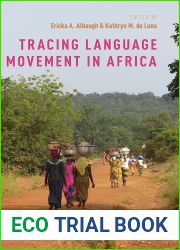



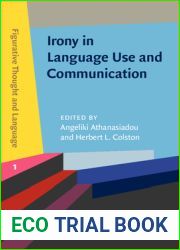
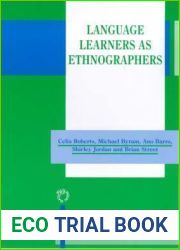
![Meaning in the Second Language (Studies on Language Acquisition [SOLA]) Meaning in the Second Language (Studies on Language Acquisition [SOLA])](https://myecobook.life/img/6/654769_oc.jpg)

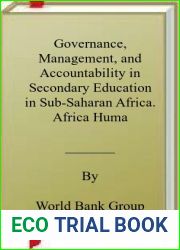
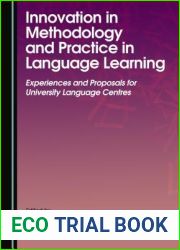


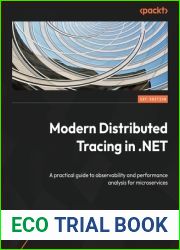


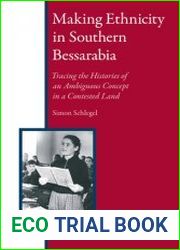

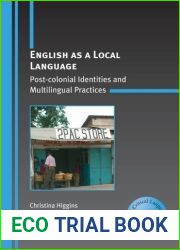
![Language Rights in a Changing China: A National Overview and Zhuang Case Study (Contributions to the Sociology of Language [CSL] Book 113) Language Rights in a Changing China: A National Overview and Zhuang Case Study (Contributions to the Sociology of Language [CSL] Book 113)](https://myecobook.life/img/5/511232_oc.jpg)


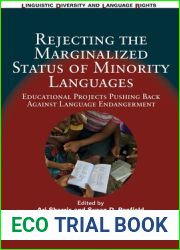
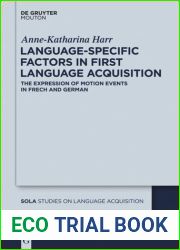
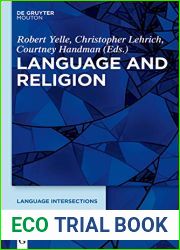
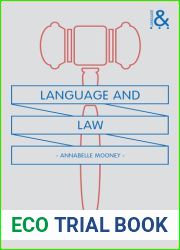
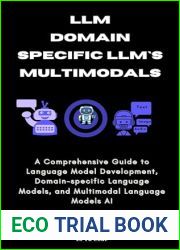
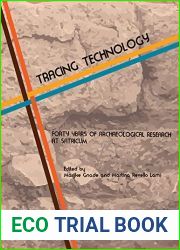


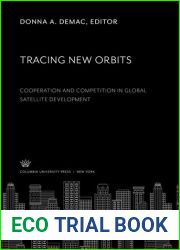

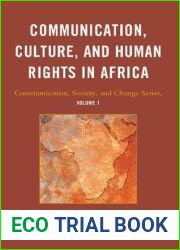



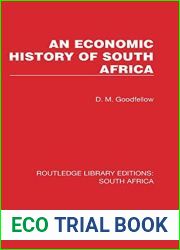
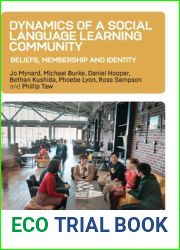
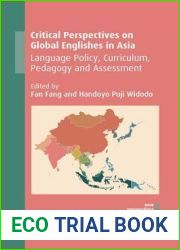

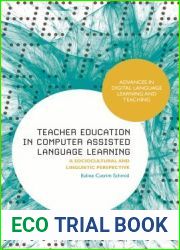
![Development of Verb Inflection in First Language Acquisition: A Cross-Linguistic Perspective (Studies on Language Acquisition [Sola]) Development of Verb Inflection in First Language Acquisition: A Cross-Linguistic Perspective (Studies on Language Acquisition [Sola])](https://myecobook.life/img/6/647403_oc.jpg)
![The Acquisition of Intensifiers: Emphatic Reflexives in English and German Child Language (Studies on Language Acquisition [SOLA], 22) The Acquisition of Intensifiers: Emphatic Reflexives in English and German Child Language (Studies on Language Acquisition [SOLA], 22)](https://myecobook.life/img/6/655610_oc.jpg)
